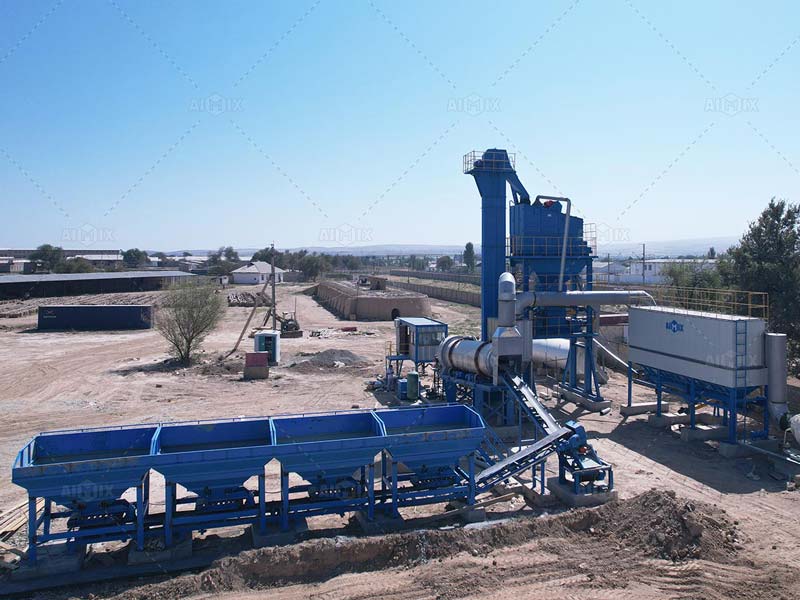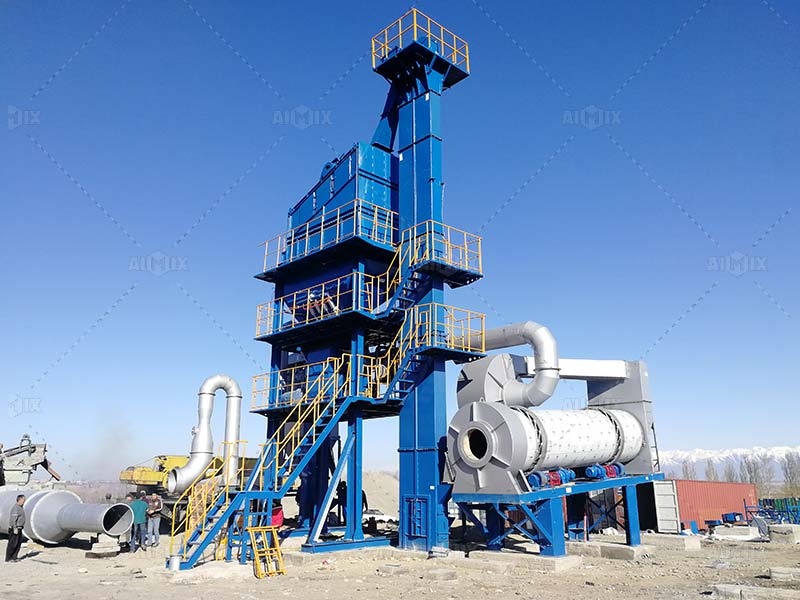The evolution of asphalt hot mixing plants has been a journey of innovation and progress. These vital components of road construction have transformed over the years, and today’s asphalt hot mixing plants are the result of relentless development and refinement. In this article, we’ll explore the pioneering journey of asphalt hot mixing plant development, from its early beginnings to the sophisticated machines of today.
The Early Days of Asphalt Mixing
In the early 20th century, the concept of asphalt mixing for road construction began to take shape. These rudimentary plants relied on basic technology, with limited automation and capacity. Asphalt was primarily mixed in batches, and the process was labor-intensive.
1. Batch Mixing Innovations
As the demand for paved roads grew, the need for more efficient asphalt mixing became evident. Asphalt batch mix plant started incorporating innovations like heating systems and mechanical agitators to improve the quality of the asphalt mix.

2. Transition to Continuous Mixing
The 1970s marked a significant shift from batch mixing to continuous mixing. This transition greatly enhanced the efficiency and production capacity of asphalt plants. Continuous mixing allowed for a consistent flow of asphalt production, reducing interruptions and increasing output.
Modern Asphalt Hot Mixing Plants
Today’s asphalt hot mixing plants represent the pinnacle of technological advancement in the field. These plants have come a long way from their humble beginnings and are now equipped with cutting-edge features and capabilities.
1. Computerized Control Systems
One of the most notable advancements is the integration of computerized control systems. These systems manage various aspects of the mixing process, such as temperature, material flow, and quality control. They ensure precise and consistent results, reducing human error. Check its systems here: https://aimixasphaltplant.com/.
2. Eco-Friendly Designs
Environmental concerns have driven the development of eco-friendly asphalt hot mixing plants. They incorporate technologies like baghouse filters and dust collection systems to minimize emissions and reduce the environmental impact of asphalt production.

3. High Production Capacities
Modern asphalt plants are designed for high production capacities. They can produce a wide range of asphalt mixtures, including hot-mix, warm-mix, and cold-mix asphalt, catering to various construction needs.
Challenges and Future Directions
The journey of pioneering development in mini asphalt plants for sale hasn’t been without its challenges. Some of the ongoing concerns include reducing energy consumption, enhancing the use of recycled materials, and improving overall sustainability.
1. Energy Efficiency
Energy consumption remains a critical aspect of asphalt production. Innovations in burner technology and thermal efficiency are crucial to reduce energy consumption and, in turn, lower operational costs.
2. Recycling and Sustainability
The recycling of asphalt materials is a growing trend in the industry. Asphalt hot mixing plants are being adapted to incorporate recycled materials, reducing waste and conserving resources.
3. Integration of AI and Automation
The future of asphalt hot mixing plants lies in the integration of artificial intelligence and automation. These technologies are expected to further enhance efficiency, quality, and sustainability in asphalt production.
In conclusion, the pioneering development of asphalt hot mixing plants has come a long way, from rudimentary batch mixing to sophisticated, computerized, and eco-friendly systems. The industry continues to evolve, addressing challenges such as energy efficiency, sustainability, and automation. The journey of innovation in hot mix plants for sale is far from over, and the future promises even more remarkable advancements in the field.
